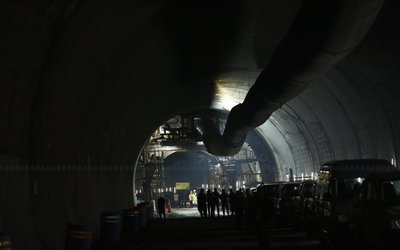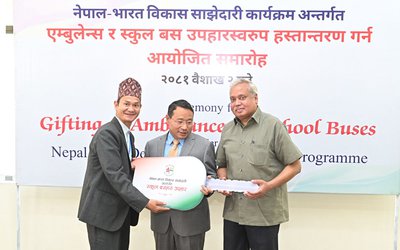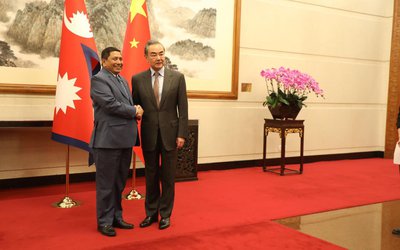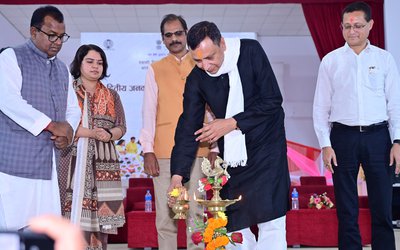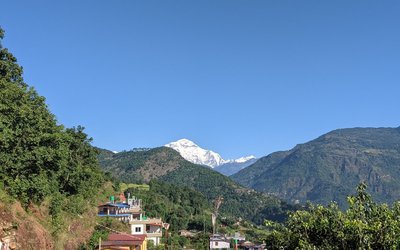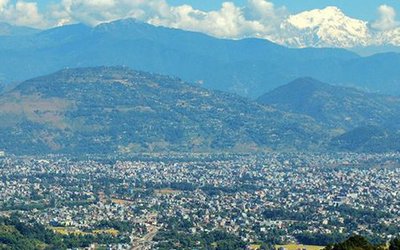
Manned by mighty Himalayas and mountains, Nepal and China conduct very few internal interactions at the borders. Despite the increasing volume of bilateral trade, Nepal-China trade is still a meager. Thus, there arefew points of friction.
Having made an economic progress in a peaceful international environment, including in its Tibetan Autonomous Region, Chinese state always pursues the policy of peace and tranquility in the neighborhood as a prerequisite for development.
Bordering over 1500 kilometers with Nepal, Chinese state is always concerned on anti-China activities by exiled Tibetans and holds the view that unstable and chaotic Nepal may have some sort of spillover effects on its southern border.
This is the reason whether during the period of monarchy or current state of Federal Republic; Chinese state speaks for peace, stability and tranquility in Nepal. Hoping to see stability, China welcomed the new constitution just a few hours after the promulgation and urging all political parties to find the political solution through negotiations.
When a high level Nepalese delegation led by Deputy prime minister and foreign minister Kamal Thapa visited China following the promulgation of new constitution, the Chinese high level officials have expressed a similar tone urging him to maintain peace and tranquility for all round development.
Chinese concernsareunderstandable as the presence of Tibetan refugees in Nepal and India can disturb the peace and tranquility of Tibet in case of chaos and instabilityin Nepal.
Signing an eight-point deal with Nepal during the high high-level government visit of Nepal led by Deputy Prime Minister and Minister for Foreign Affairs Kamal Thapa, Chinese foreign Minister Wang Yi, and, hence, China has shown how it supports Nepal.
As usual, the bilateral talks have also agreed upon to arrange official visits of prime ministers of both countries in appropriate times.
A joint press statement issued after the agreement between the two sides states that the deal includes provision of long-term fuel trade between Nepal and China. Similarly, China has also agreed to help Nepal settle the fuel crisis in both short-term and long-term bases. According to the statement, China has urged respective companies of both the countries to jointly examine the matters relating to price, transportation and other logistics.
The other provisions of the agreement include construction of dry ports at both sides and management of custom points at the border for the promotion of bilateral trade between the two nations. Likewise, both the countries have also agreed to further study the Bilateral Investment Promotion and Protection Agreement (BIPPA) actively.
Agreeing to accelerate works at highways connecting the two countries to promote bilateral trade, China also lifted the precaution notice issued to its citizens to visit Nepal after the April 25 earthquake. The Chinese side believed that the move will increase the flow of Chinese tourists in Nepal, thereby promoting tourism of the landlocked country.
“The two sides have agreed to expand and consolidate bilateral cooperation focusing mainly on trade, transit, investment, energy, tourism and infrastructure,” a separate press statement issued by Ministry of Foreign Affairs (MoFA), Nepal reads. According to the MoFA, China has also agreed to give priority to the reopening of Tatopani-Zhangmu border point, which has been disrupted by the earthquake.
“China has also announced its willingness to support Nepal's industrialization process through reconstruction,” added the MoFA statement.
A ten-member high-level government team led by Deputy Prime MinisterThapa completed a visit holding government to government (G2G) talks with the northern neighbor.
Sandwiched between Asia’s two giants, handling the foreign relations with two neighbors is always tricky. A decision by King Mahendra just to open Kathmandu-Kodari highway in 1960s has brought many political ups and downs. Future will show how the situation will be like in Nepal following signing of so-many understandings with China on opening several borders, linking roads and strategic shifts on energy.
- TANAHU HYDROPOWER PROEJCT: A Significant Achievement
- Apr 15, 2024
- AMBASSADOR HANAN GODAR: Sharing Pain With A Nepali Family
- Mar 30, 2024
- VISIT OF KfW AND EIB TO NEPAL : Mission Matters
- Mar 25, 2024
- NEPAL BRITAIN SOCIETY: Pratima Pande's Leadership
- Mar 24, 2024
- NEPAL ARMY DAY: Time To Recall Glory
- Mar 15, 2024

